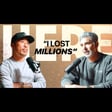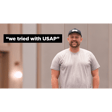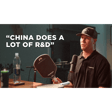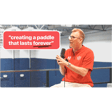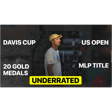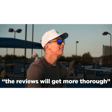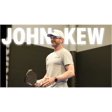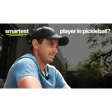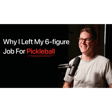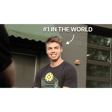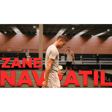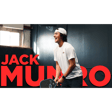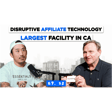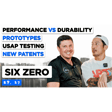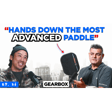
Watch This Before Opening A Pickleball Facility
welcome to the first episode of a new series where we deep dive into the business of pickleball facilities. The objective is to uncover the stories behind these thriving businesses, explore each facility’s ingredients for success, and what makes them unique. In July I made my first stop to San Diego to visit Pat Rolfes, co-founder of The HUB https://thehubpickleball.com/the-hub-san-diego/
Pique - tea and coffee alternatives - http://piquelife.com/bpickleball
If you're interested in the merch, send an email to buildingpickleball@gmail.com
#pickleball #pickleballcourts
Chapters 00:00 intro 00:39 first time we met 01:04 location, background 04:55 gathering experience before opening a facility 06:08 location location location 07:35 knowing a good deal vs a bad one 10:17 analyzing debt, deals 13:11 mall vs club 13:56 large scale & court vs club 14:43 competing w free (parks) 16:16 overhead costs 18:18 opinion on franchises 21:12 what to look for in a franchise deal 24:40 leave emotion out of it 25:35 key critical first hire 28:25 virtual pro shop, pickleball superstore 33:59 closing
👤 CONTACT: Sponsorship, ad space: Email: buildingpickleball1@gmail.com
📸 Follow me on Instagram: @buildingpickleball
📝 Subscribe to my newsletter: https://buildingpb.beehiiv.com/subscribe
Contributions: https://www.buymeacoffee.com/buildingpickleball
🎗️SPONSOR: - Vuori discount: https://vuori.com/buildingpickleball - Not only will you receive 20% off your first purchase, but free shipping on any U.S. orders over $75 and free returns. Go to vuori.com/buildingpickleball and discover the versatility of Vuori Clothing
💲DISCOUNT CODES 💲 (using these helps support the channel) • Vuori: 20% discount applied at checkout https://vuoriclothing.com/buildingpickleball • SixZero: BD10 https://www.sixzeropickleball.com/ • UDrippin: BP https://www.udrippin.com/ • Vatic Pro: BP-10 https://vaticpro.com/ • Pickleball Superstore: BP Use this URL: https://pickleballsuperstore.com/discount/BP • JOOLA: BP10 http://bit.ly/3XnXQOR • BreadNButter: BP https://www.bnbpickleball.com/ • Be Free Bars: protein energy bars https://befreebar.com/ • Honolulu Pickleball: BRIANLIM https://808pickle.com/brianlim5339220 • Leorever: BP https://leorever.com/ • Storyi: BRIANLIM https://www.ourstoryi.com/discount/BRIANLIM?ref=qrxsjmbk • Maverix: BuildingPB https://www.maverixpickleball.com
Looking for a moving company in Austin? Check out https://heavenlymove.com/
Looking for art? Check out https://millennialcollectivestore.com/
📲 FOLLOW 📲 • Spotify - https://open.spotify.com/show/5aPtDs5VOnqpbQpF12SLZN • Apple Podcasts - https://podcasts.apple.com/us/podcast/building-pickleball/id1666931896
I use Epidemic Sound, sign up for a 30-day free trial here https://share.epidemicsound.com/iro87j
